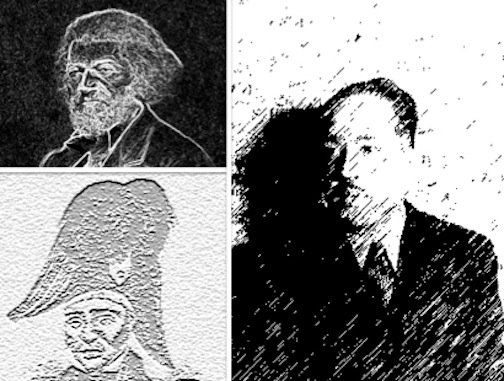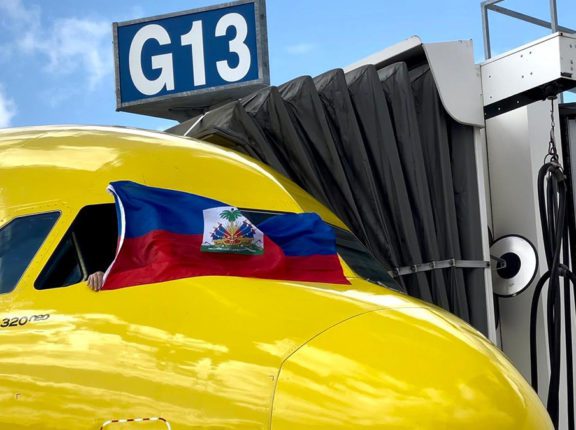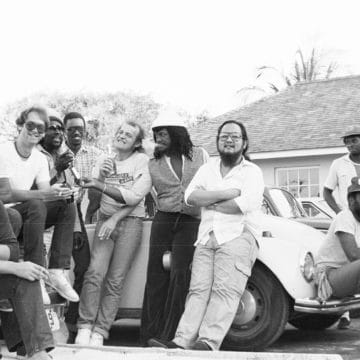By Celucien Joseph
Op-Ed Contributor
THE HAITIAN REVOLUTION of 1791-1804 was the “Big Bang” of the New World and the first “Great Exodus” of enslaved Africans out of New World slavery.
CRL James, championing the significance of the revolution in the Antillean life and world, wrote in the Appendix of his revised classic book on the Haitian Revolution, The Black Jacobins: Toussaint L’Ouverture and the San Domingo Revolution (1938): “West Indians first became aware of themselves as a people in the Haitian Revolution.”
As a scholar and interpreter of the human experience, I have sought to interpret the Haitian Revolution in its complexity as well as to engage the intersections of history, race, religion, and human emancipation connecting to this freedom story in modernity.
Religion, race, and freedom, however, had played a significant role in the Haitian revolutionary narrative.
Black Atlantic writers such as African American intellectual Frederick Douglass and the poet-activist Langston Hughes not only affirmed the paramount importance of the Haitian Revolution for Black freedom, Black dignity, and Black self-determination worldwide but also about the performative function and limits of religion in the unfolding events leading to the “The Haitian Turn” in global history.
For example, in 1938, Hughes published a historical played called Emperor of Haiti: A Historical Drama, which he would consequently revise numerous times. In the drama, the eminent Black poet underscores the prophetic role of the neo-African religion of Haitian Vodou at the interception of the Haitian Revolution.
Hughes defines Black freedom in connection with the freedom of faith, and in relation with the deliberate performance of the Haitian Vodou by the enslaved community in the French colony of Saint-Domingue.
He presents the Vodou religion in Emperor of Haiti as a humanizing force in its colonial context. He also uses the religion to assert African diasporic beliefs and customs and to counter the religious exclusivism and intolerance of the imperial system as reflecting in the Black Code.
In this way, Hughes attempts to accomplish two things: (1) he is affirming the African presence in the Caribbean nation, and (2) he is articulating a narrative of Haitianism whose religious story contradicts the imperial religion and theology of colonial Christianity. Hughes’ underlying thesis argues for the emancipative vision and function of the Vodou faith in the achievement of Black freedom in Haiti.
In the same line of thought, Frederick Douglass, in his “Lecture on Haiti,” which he delivered on Jan. 2, 1893 at the famous Quinn Chapel of the African Methodist Episcopal Church, the oldest African-American congregation in Chicago established in 1847, posits that the Haitian Revolution was a turning point in world history and equally in the human narrative of freedom.
It is global, transcultural, and beyond race. He argues that the slaves at Saint-Domingue were also actors in history and key makers of modernity as well as proponents of freedom and defenders of the rights of all men and women—a historical fact that is often silenced in European-American histories.
Douglass appeals to the Haitian Revolution to debunk the essentialist character of race and racial groups—an idea that was prevalent in his time—which scientific racism of the 19th century employed to account for “racial achievement” in world history.
For the abolitionist, race is a fluid concept and a social construction; race can’t be used to describe the unprecedented feat of Black freedom at Saint-Domingue-Haiti. Douglass also counters “the idea of ‘whiteness’ as a sign of superiority and justification for oppressing blacks depended on believing the self was fixed and unchanging.” He moves beyond the traditional notion of race as fixed and based primarily on blood, heredity, and social status, and instead saw race in a state of continual flux.
On the other hand, Douglass utilizes the category of race to vindicate Haiti against her distractors: “whether civilized or savage, whatever the future may have in store for her, Haiti is the black man’s country, now forever,” he says. He also contends that the Haitian freedom is emblematic of “Negro manhood, Negro bravery, Negro military genius and skill.”
The events leading to the Haitian phenomenon, Douglass highlights, “not only indicate the Negro’s courage, but demonstrate his intelligence well.” The Haitian revolutionaries, for Douglass, were “brave men…the greatest and noblest of mankind…who loved liberty more than life…confronted [or fought for] a righteous cause…She has grandly served the cause of universal human liberty.”
Moreover, Douglas renounces the failure of colonial Christianity to emancipate enslaved Africans under the curse of slavery. Douglass’ cogent disclosure is more revealing below:
“Until Haiti struck for freedom, the conscience of the Christian world slept profoundly over slavery… until she spoke no Christian nation had abolished negro slavery. Until she spoke no christian nation had given to the world an organized effort to abolish slavery. Until she spoke the slave ship, followed by hungry sharks, greedy to devour the dead and dying slaves flung overboard to feed them, ploughed in peace the South Atlantic, painting the sea with the Negro’s blood.”
Douglass’s articulation of the universal silence of Western societies over the issue of slavery in the age of democratic revolution is convincing for two reasons. First, he points out that the most profound failure of the Christian West has been its inability to deal effectively with the culture of slavery it upheld; second, he substitutes “the silent voice” of the West on the issue of black slavery with “the untamed voice of freedom” which Haiti came to symbolize. Arguably, Douglass engages in a discursive battle of location: Haiti and the West, the free space and the unfree space.
By employing the recurring phrase “until she spoke,” Douglass was emphasizing slave agency and the audacious determination of African slaves in Saint-Domingue in reclaiming their political subjectivity and establishing a fully independent land of freedom, in the culmination of the Haitian Revolution.
Douglass ‘critical reflections on the Haitian Revolution should be understood as a contemplation of the moral wrongness of enslaving human beings supported by “American democratic Christian” as Douglass phrases it elsewhere as well as a meditation on “the metaethical level of morality’s relevance in exigent situations.” For Douglass, Haiti’s moral vision is her incomparable gift of revolutionary freedom to the entire world. This reasoning is consistent with Douglass’ felicitous choice of words for revolutionary Haiti, “a city upon a hill.”
Both Douglass and Hughes used the singular event of the Haitian Revolution as a historic example to articulate their perspective on race achievement, Black resistance, Black heroism, and collective self-determination as well as to inform us about the role of faith in this singular event in the Western world.
Yet, we must remember that the Haitian Revolution is a story where history, race, religion, and freedom meet. In 1757, in pre-revolutionary Haiti, maroon and religious leader François Makandal prophetically forecasted that the new masters of the island would be the blacks. Thirty-four years after Makandal’s death, radical religious leader Dutty Boukman and over two hundred slave insurgents launched a freedom movement that initiated the Haitian Revolution in August 1791.
Boukman believed that the slave God was the “God of the Oppressed” who desired their total freedom and decolonization from the colonial order and white oppressors. Both Makandal and Boukman articulated a Black Theology of Liberation which is anti-colonial, anti-white oppressions; their religious imagination also counters white supremacist theories of race and refutes the racial colonization of religion and the divine.
Celucien L. Joseph, PhD (University of Texas at Dallas) is an adjunct Professor of English at Palm Beach State College. He is the author of the new book, Race, Religion, and The Haitian Revolution: Essays on Faith, Freedom and Decolonization (CreateSpace, 2012). Professor Joseph is also working on two forthcoming books, “Religious Métissage: The Religious Imagination and ideas of Jean Price-Mars” (Wipf & Stock, 2013), and “Faith, Secular Humanism, and Social Development: Jacques Roumain’s Engagements with Religion and Critical Theory” (University Press of America, 2013).
Note: the opinions expressed in Caribbean Journal Op-Eds are those of the author and do not necessarily reflect the views of the Caribbean Journal.







